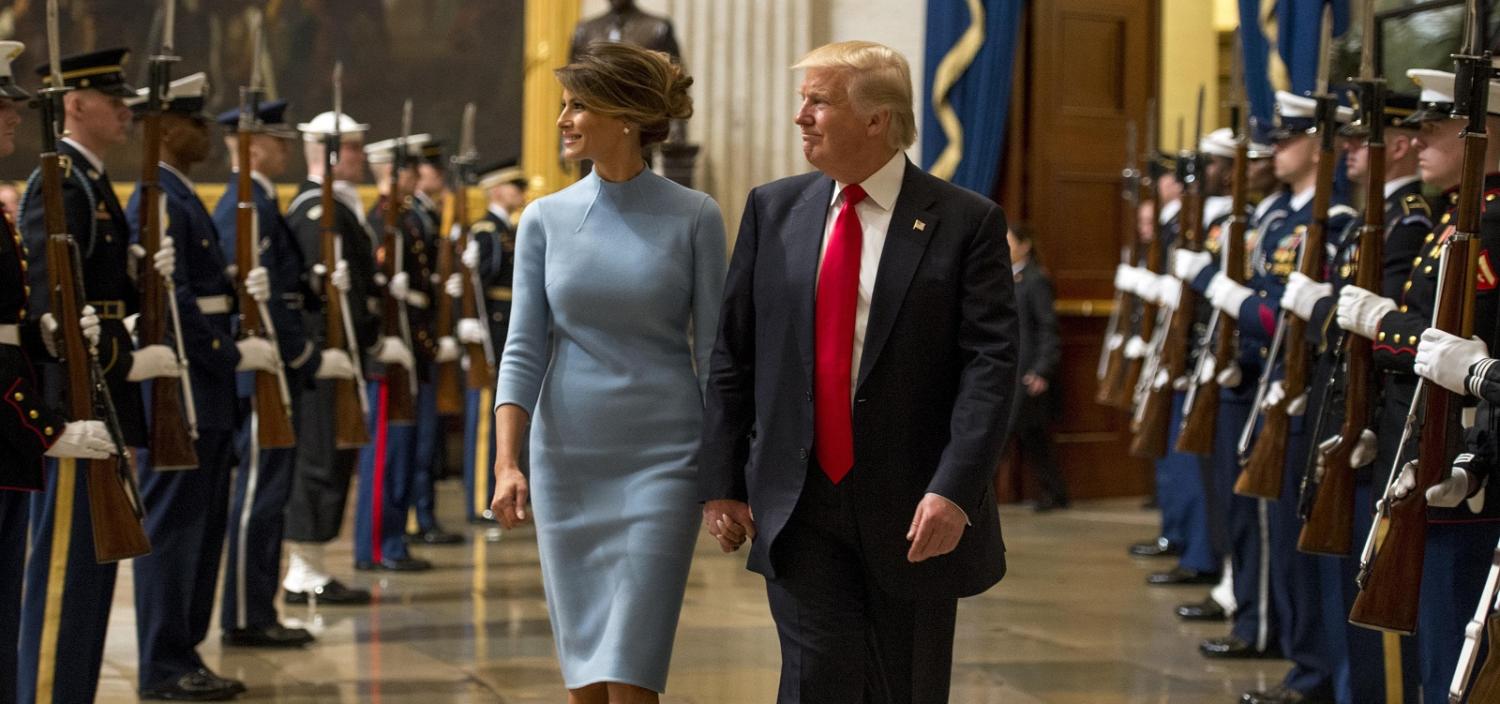Speaking at the Lowy Institute in July, Dennis Richardson warned that when it comes to the Trump Administration, Australian officials and pundits must:
- Take a deep breath;
- Avoid getting caught up in the ‘poison’ of US domestic politics; and
- Read about the United States from different perspectives.
This is profoundly insightful, and speaks directly to the short-sightedness of those academics and journalists dragging Australia into the Washington fray. This is happening in a variety of ways: through a steady torrent of anti-Trump commentary; by inviting prominent American critics of Trump on speaking tours; and by tendering profoundly unhelpful advice when it comes to dealing with the Trump presidency.
Were Australian officials and policymakers to be influenced by this in their handling of the bilateral relationship, the results would be disastrous.
There is a pre-disposition, wholly erroneous, to treat Donald Trump as an aberration to be endured, and that in four years America will return to ‘normal’. This presents a failure to understand what gave rise to Trump in the first place. Trump’s presidency is not the product of some temporary insanity, but rather the natural consequence of changes in American life and society.
Given the lopsided narrative dominating the current discourse, it’s worth examining the other side of the ledger. Despite obvious teething problems, Trump’s presidency is proving a success in a number of critical respects.
As Commander-in-Chief, President Trump has been superb. Trump faced his first international crisis when Syrian dictator Bashar Al-Assad killed scores of civilians in a sarin gas attack. Any US response was certain to earn the ire of the Russians with whom Trump was seeking to cooperate and, just days before, Secretary Tillerson announced that Assad’s removal was not an American foreign policy priority. Despite these complications, Trump’s response - a cruise missile strike - was swift, proportionate, and specific. It has deterred further chemical weapons use while avoiding escalation. This success may appear modest, until we reflect on how a President Hillary Clinton would have reacted, given her consistent calls for Assad’s overthrow.
Under President Trump, the destruction of ISIS is happening at a massively accelerated rate relative to his predecessor. Even the Washington Post, no supporter of the Trump Administration, reports that the change in strategy has resulted in dramatic gains in Mosul and Raqqa. Consequently, ISIS’s continued existence as an entity is likely to be measured in weeks, not months or years.
Third, and most importantly for Australia, for the first time since Nixon there is a US president who places Asia at the centre of foreign policy thinking. North Korea’s nuclear weapons and missile program is this Administration’s first national security priority. This renewed attention led to yet another major foreign policy achievement – a unanimous UN Security Council resolution imposing the most stringent sanctions in a generation.
None of this is to say that there isn’t a critical malaise sitting at the heart of the US political system, because there is: Congress. Between debt ceiling shutdowns, gun control, climate change, tax reform, Senate confirmations and health care, hyper-partisanship and factionalism has brought America’s legislature to its knees. Indeed, President Obama’s farewell address was widely misinterpreted as being anti-Trump. It wasn’t. It was anti-Congress, placing the blame for many of America’s problems squarely on the failures of that institution.
Moreover, the bitter resistance within the so-called ‘deep state’ (bureaucracy, intelligence community) to the Trump Administration undermines US national security and the White House. Unprecedented leaking of Trump’s private conversations with world leaders is the first time Trump-hating elites began to question whether it was all going too far, apparently oblivious to the fact they had hitherto been cheerleading these ‘patriotic acts’.
Then there is the domestic front. Predictions that the US would collapse back into another great recession under Trump’s economic policies are presently an embarrassment. In Trump’s first six months, the unemployment rate has reached a 16-year low, while as of today the Dow Jones has recorded its ninth straight all-time record high. Many criticise Trump for notpassing health care reform, however this is a massive failure for a Republican Party that committed to repealing and replacing Obamacare many years before Trump ever ran for office. The real test for Trump’s legislative agenda is still to come, namely infrastructure spending, tax reform, rebuilding the military, and the border wall.
Not every policy decision Trump has taken is deserving of praise, withdrawal from the Paris climate agreement principal among them. Nevertheless, a President who encourages the Europeans to look after themselves, prioritises stability in the Middle East over interventionism, and focuses on the challenges in Asia should have Australian officials leaping for joy. Instead, Australian foreign policy commentators would have us tiptoe around the White House as if clinging to the edge of an ice rink. Australia has much to gain from an effective partnership with the Trump Administration but, thanks largely to those fixated by Trump’s tweets and the White House soap opera, we are off to a deeply unedifying start.

